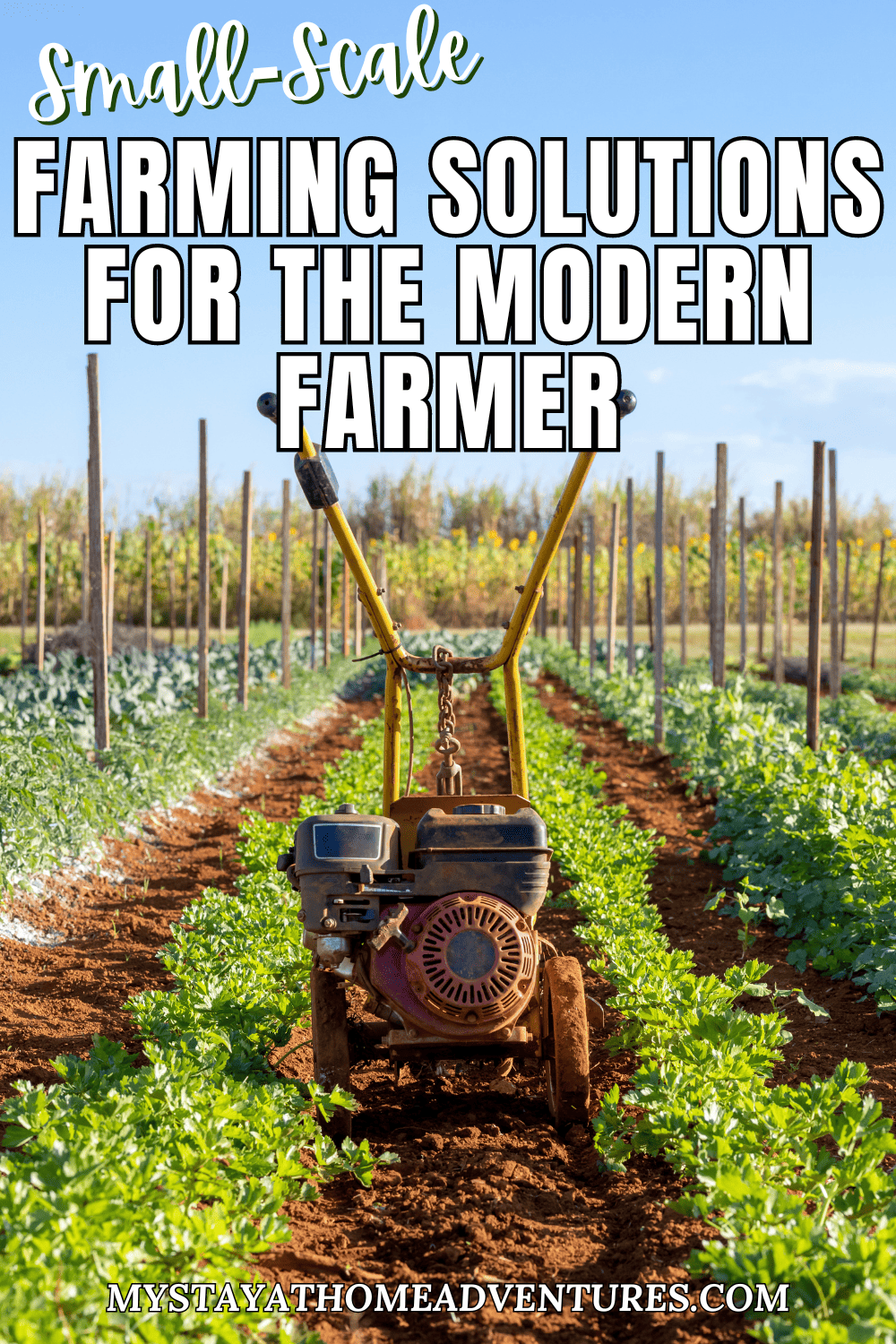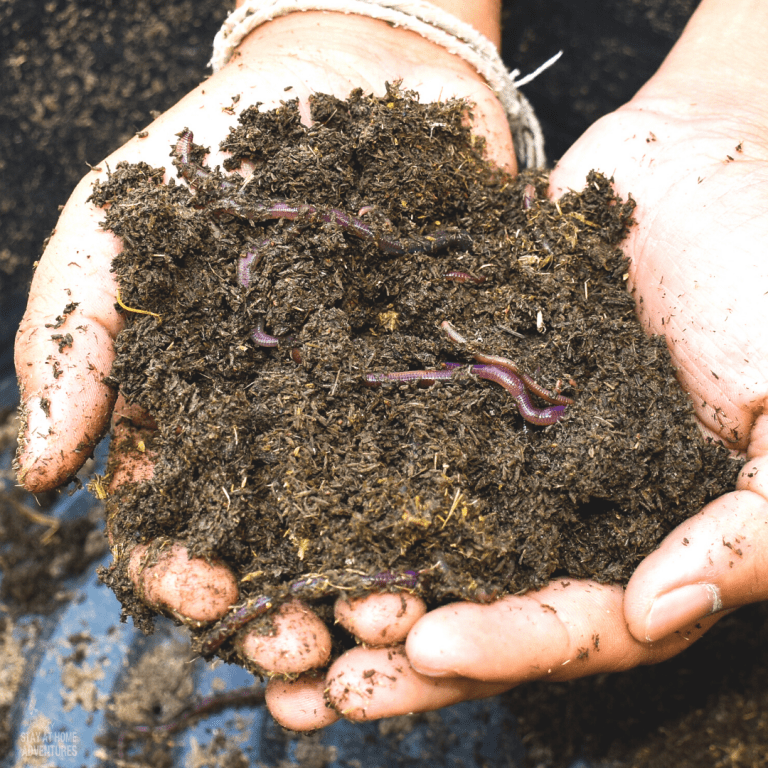Small-Scale Farming Solutions for the Modern Farmer
This post may contain affiliate links which might earn us money. Please read my Disclosure and Privacy policies hereSmall-scale farming has been experiencing a resurgence in recent years, with more and more individuals and families looking to embrace sustainable agriculture practices. Whether you're a seasoned farmer or just starting, various innovative solutions and strategies can help you succeed in this ever-evolving field.
This article will explore some of the most effective small-scale farming solutions for the modern farmer, including prime examples of intelligent and sustainable farming practices. Where do we begin?
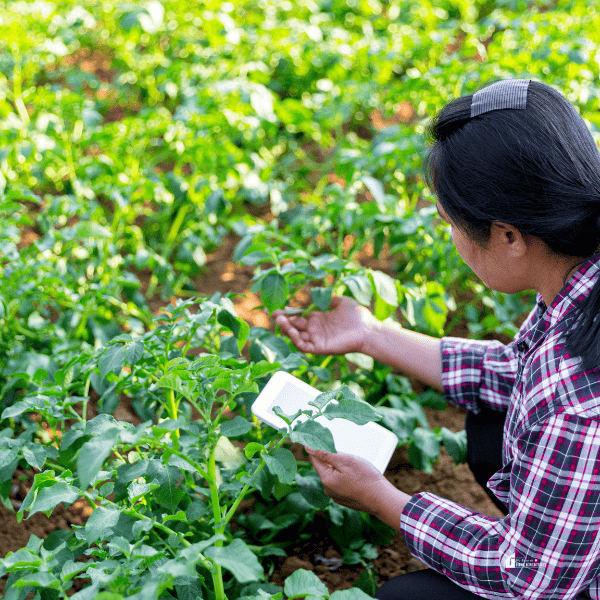
Embracing Sustainable Farming Practices
In a world of growing environmental concerns, sustainable farming practices have become a top priority for many modern farmers. These practices focus on minimizing the negative impact on the environment while optimizing the use of available resources. Small-scale farmers are uniquely positioned to implement sustainable techniques due to the manageable size of their operations.
Sustainable farming practices also encourage biodiversity on the farm. By cultivating various crops and creating diverse habitats, small-scale farmers can attract beneficial insects and wildlife that contribute to natural pest control and pollination, reducing the need for chemical inputs.
Another significant benefit of sustainable farming practices is soil carbon sequestration. Small-scale farmers practicing techniques like reduced tillage and cover cropping can enhance their soil's ability to capture and store atmospheric carbon dioxide, helping mitigate climate change while improving soil health.
Crop Rotation and Soil Health
One of the fundamental principles of sustainable farming is crop rotation. It involves systematically planting different crops in the same field over time. This method helps improve soil fertility and reduce the risk of soil-borne diseases. By alternating crops, you can break the cycle of pests and diseases that can plague your crops and lead to reduced yields.
Cover crops are also essential for small-scale farmers looking to improve soil health. These are non-commercial crops planted during off-seasons to cover the soil, preventing erosion and enhancing nutrient retention. Legumes like clover and vetch can also fix nitrogen in the soil, reducing the need for synthetic fertilizers.
For small-scale farmers, precision farming with raised beds can also be a game-changer. Raised beds provide better control over soil quality and moisture levels, resulting in higher crop yields. Additionally, the reduced need for tilling can help prevent soil erosion and compaction, promoting long-term soil health.
Dealing with pests is another constant challenge for farmers, but modern small-scale farmers are finding creative solutions that minimize the use of harmful chemicals. Integrated pest management (IPM) strategies involve a combination of biological, mechanical, and chemical control methods to manage pests effectively. This approach reduces the reliance on synthetic pesticides and fosters a more balanced ecosystem on the farm.
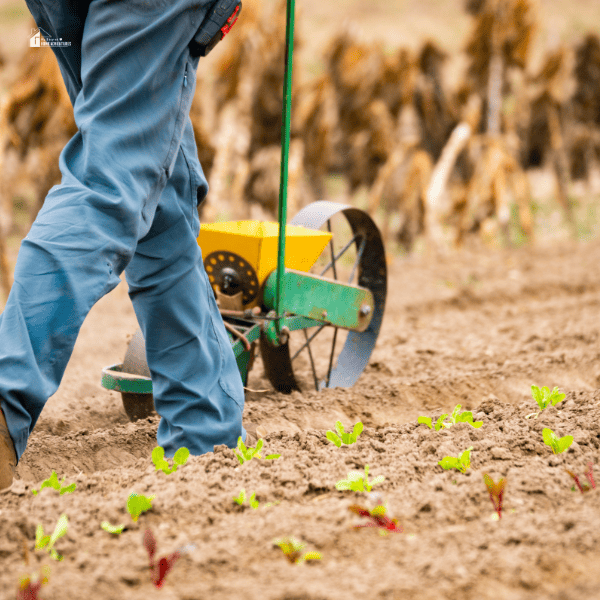
Sustainable Farming Techniques
This category encompasses various techniques that enhance soil quality, reduce chemical reliance, and provide economic benefits. These solutions include innovations such as chicken tractors, improving soil structure through natural processes like soil aeration and nutrient-rich manure deposition. Chicken tractors and mobile coops enable chickens to graze on fresh vegetation, promoting their well-being and soil health while efficiently controlling pests.
Portable enclosures such as chicken tractors also contribute to efficient pest control, reducing the need for chemical pesticides. Such pest control innovations depict the broader principles of sustainable farming, which promote environmental stewardship and financial sustainability for small-scale farmers, making them a valuable addition to any farm.
Diversifying your farming operation can also enhance its sustainability and resilience. Small-scale farmers often choose to grow a mix of crops, including fruits, vegetables, and herbs. This diversification not only spreads risk but also improves soil health and pest management by disrupting the life cycles of specific pests and diseases.
In many regions, water scarcity is a significant concern for agriculture. To optimize water use, small-scale farmers can adopt water-efficient practices, such as drip irrigation and rainwater harvesting systems. These technologies help reduce water wastage and ensure crops receive the right amount of moisture, even in arid conditions.
Local Marketing and Education
Modern small-scale farmers are succeeding by bypassing traditional distribution channels and connecting directly with consumers. Farmers' markets, community-supported agriculture (CSA) programs, and online sales platforms allow you to sell your products directly to consumers, cutting out the middleman and increasing profitability.
Furthermore, continuous learning and information exchange must be considered. Participating in farmer-led workshops, engaging in online forums, and embracing peer-to-peer learning opportunities enable small-scale farmers to remain at the forefront of evolving agricultural practices and technologies.
By fostering a perpetual improvement and cooperation culture, modern farmers collectively adapt to challenges, seize emerging opportunities, and contribute to the resilience and prosperity of the small-scale farming sector. This commitment benefits individual farmers and contributes to a brighter and more promising future for small-scale farming, enriching both individuals and the environment.
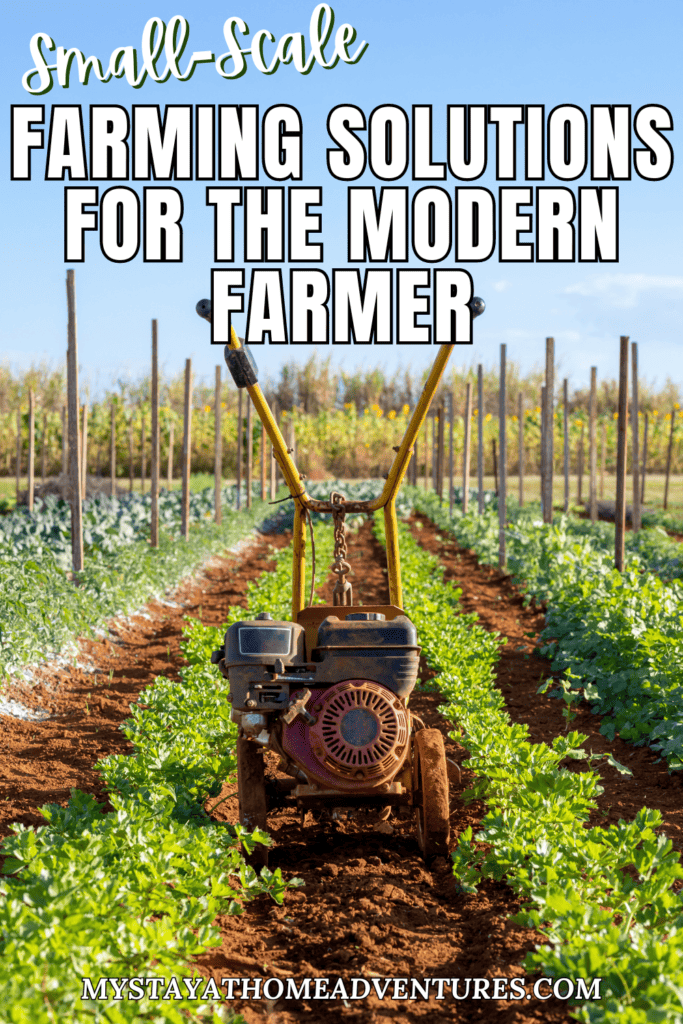
Conclusion
The resurgence of small-scale farming highlights a collective shift towards sustainable agriculture, emphasizing environmental responsibility and innovative farming solutions. By embracing sustainable practices like crop rotation, soil health enhancement, and integrated pest management, small-scale farmers set new standards for efficient, eco-friendly agriculture.
Crop health techniques and water-efficient irrigation demonstrate the ingenious adaptation of modern farmers to contemporary challenges. Additionally, the focus on direct marketing strategies and continuous education underlines the importance of community engagement and knowledge sharing in ensuring the success and sustainability of small-scale farming. This evolving landscape benefits the environment and local communities and paves the way for a resilient, prosperous future in agriculture.

